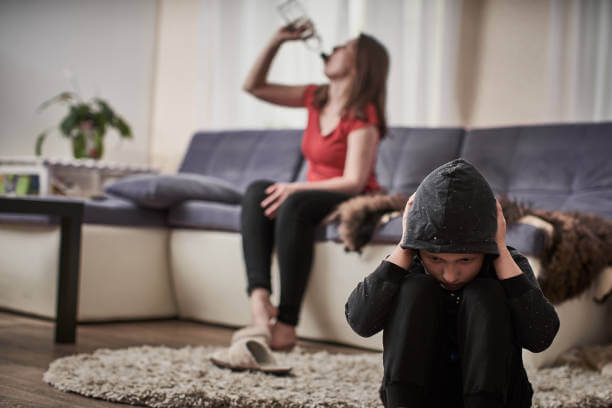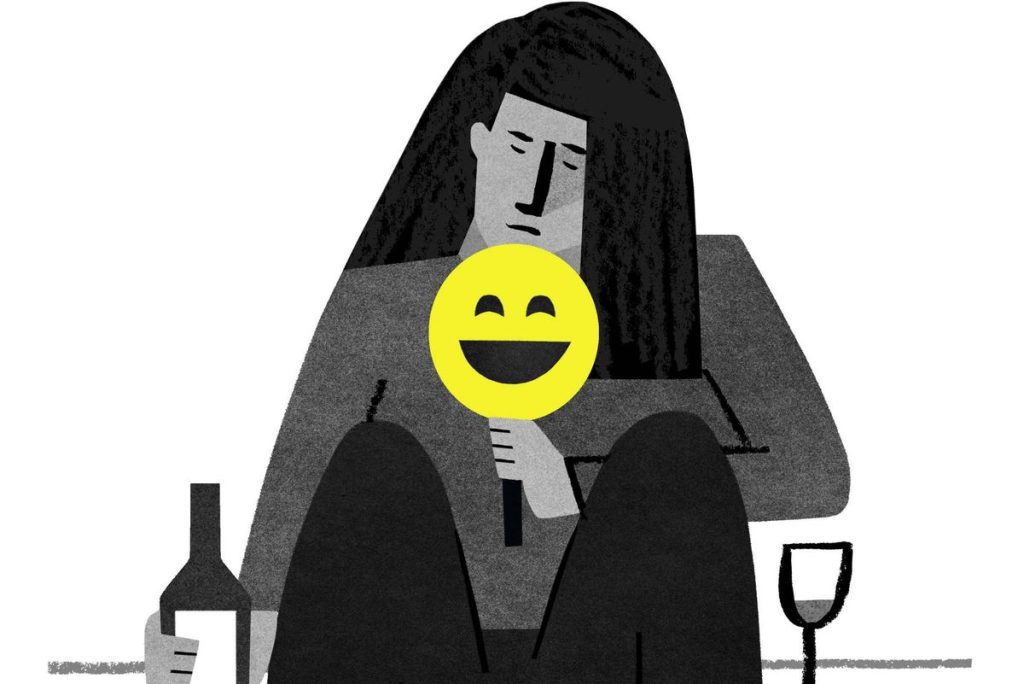几乎每个拥有智能手机的孩子都在使用 WhatsApp。如果您是父母,您可能想知道 WhatsApp 有什么问题。毕竟,这是一款流行的消息传递应用程序,可让孩子们与朋友保持联系。但是在让您的孩子使用 WhatsApp 之前,您应该了解一些关于 WhatsApp 的事情。
首先,WhatsApp 归 Facebook 所有。这意味着您孩子的所有数据都由世界上最大的数据挖掘公司之一收集。 WhatsApp 可以访问聊天中所说的所有内容以及参与这些聊天的人员的联系信息。然后使用该数据创建向用户展示的有针对性的广告。
其次,WhatsApp 是网络欺凌的温床。由于该应用程序非常受欢迎,欺凌者很容易将他们的信息传给许多孩子。而且由于该应用程序主要由儿童使用,因此成年人并不总是知道发生了什么。这会使父母难以追踪和制止网络欺凌。
如果您担心您的孩子在手机上做什么,那么您并不孤单。使用所有可用的消息传递应用程序,跟踪他们所说的话可能具有挑战性。但是,您可以通过多种方式查看孩子的 WhatsApp 聊天记录,甚至可以在他们不知情的情况下跟踪他们的位置。
“做到这一点的一种方法是使用像“Smart Protect”这样的跟踪应用程序。这个应用程序可以让你看到你的孩子发送、接收的所有 WhatsApp 消息,并跟踪他们的位置。这个应用程序是无法检测到的,所以你的孩子永远不会知道您正在监视他们的活动。”一种方法是使用“Smart Protect”之类的跟踪应用程序。这个应用程序将允许您查看您的孩子发送、接收和跟踪他们的位置的所有 WhatsApp 消息。该应用程序是无法检测到的,因此您的孩子永远不会知道您在监视他们的活动。
查看孩子的 WhatsApp 聊天记录的另一种方法是征求他们的许可。如果他们使用 iPhone,您可以使用 iCloud 备份功能查看他们的 WhatsApp 消息。如果他们使用 Android 手机,您可以使用 WhatsApp 备份应用程序访问他们的聊天记录。
如果您担心孩子在手机上做什么,您可以通过多种方式查看他们的 WhatsApp 聊天记录。通过使用跟踪应用程序或征求他们的许可,您可以密切关注他们的活动并确保他们的安全。
最好的解决方案是使用 智能保护.如果您正在使用 智能保护,您应该密切监视他们的活动。寻找网络欺凌的警告信号,例如行为突然改变或退出社交活动。
最后,如果您与您的孩子谈论使用 WhatsApp 的危险,将会有所帮助。确保他们知道他们的数据正在被收集,并且他们的聊天内容对黑客来说是不安全的。解释网络欺凌是一个严重的问题,如果他们看到应用程序上发生任何欺凌行为,他们应该告诉您。
作为父母,您必须了解让孩子使用 WhatsApp 的风险。通过对您自己和您的孩子进行有关该应用程序的教育,您可以帮助他们远离潜在的伤害。
青少年的自杀率一直在以惊人的速度上升。事实上,自杀现在是青少年的第二大死因。最近的一项研究发现,近五分之一的高中生曾认真考虑过自杀。
导致青少年自杀的因素有很多。其中最重要的一种是网络欺凌。随着社交媒体的兴起,欺凌者现在有了一个新的平台来折磨他们的受害者。不幸的是,这可能会带来毁灭性的后果。研究发现,网络欺凌是自杀的主要危险因素。
父母应该注意一些警告信号。这些包括:
如果您在青少年身上看到任何这些迹象,请务必与他们谈谈。如果您担心,还应该寻求专业帮助。
父母可以采取一些措施来防止青少年自杀。一是密切关注他们的社交媒体活动。这可以使用家长控制软件来完成,例如 智能保护.该软件可让您监控孩子的在线活动,查看他们是否受到欺凌或查看有害内容。
您可以做的另一件事是与您的青少年谈论自杀。这可能是一场艰难的对话,但重要的是让他们知道您就在他们身边,并且他们可以带着任何东西来找您。
最后,如果您的青少年正在经历艰难时期,给予支持和理解很重要。让他们知道你爱他们,他们可以度过任何难关。
如果您担心青少年的心理健康,请毫不犹豫地寻求专业帮助。
自残是青少年中日益严重的问题。一项新研究表明,六分之一的青少年会自残。这项由密歇根大学进行的研究发现,自残在女孩中比男孩更常见。
该研究调查了近 2,000 名年龄在 11 至 19 岁之间的青少年。参与者被问及他们的心理健康状况,他们是否曾伤害过自己,如果伤害过,频率是多少。
在接受调查的青少年中,16% 的人表示他们曾在某个时候伤害过自己。在那些伤害过自己的人中,将近一半的人说他们不止一次这样做过。
女孩比男孩更容易自残。接受调查的女孩中有 20% 表示她们曾伤害过自己,而男孩中这一比例为 11%。
该研究没有询问为什么青少年会伤害自己,但之前的研究表明,自我伤害可能是应对困难情绪的一种方式。它也可以是表达愤怒或沮丧的一种方式。
自残通常是潜在心理健康问题的征兆。如果您正在伤害自己,请务必寻求心理健康专家的帮助。
如果您的孩子正在伤害自己,请务必寻求心理健康专家的帮助。您还可以使用家长控制软件,例如 智能保护 监控青少年的互联网使用情况并帮助防止他们访问有害内容。
家长控制软件可以成为父母密切关注孩子的好方法吗?在线活动并保护他们免受潜在危险。但是,使用这些类型的程序也存在一些风险。以下是家长控制软件的一些优缺点:
总的来说,家长控制软件可以成为家长用来保护孩子上网安全的好工具。但是,在决定它是否适合您的家庭之前,权衡利弊非常重要。如果您决定使用家长控制软件,我们建议 智能保护 作为一个不错的选择。
新学年的开始既令人兴奋又充满压力。但是通过做好准备并养成良好的习惯,您可以为成功做好准备。这里有 10 条提示,可帮助您充分利用返校体验。
通过遵循这些提示,您可以在新学年中顺利开学。您会更有条理、压力更小并且为成功做好更充分的准备。因此,准备好读书并度过美好的一年吧!
在确保儿童上网安全方面,父母可以使用多种工具。一种这样的工具是家长控制软件。家长控制软件可以帮助家长监控孩子的在线活动并保护他们免受有害内容的侵害。
市场上有许多不同的家长控制软件产品。其中一些产品比其他产品更全面。一些家长控制软件产品将允许家长实时监控孩子的在线活动,例如 智能保护.如果他们的孩子访问了他们不应该访问的内容,其他产品只会向父母发送警报。
一些家长控制软件是一种互联网过滤软件,旨在限制儿童访问某些网站或在线内容。家长控制软件可用于阻止被认为不适合儿童的网站,例如包含暴力、色情或仇恨言论的网站。它还可用于限制儿童上网的时间,或防止他们下载某些类型的文件。
有多种可用的家长控制软件程序,它们在功能和价格方面各不相同。一些更受欢迎的程序包括 斯皮耶拉, 智能保护、K9 网络保护和网络巡逻。这些程序可以安装在计算机、智能手机或平板电脑上,它们通常带有一组可由用户自定义的预配置规则。对于希望保护孩子免受有害或不当在线内容侵害的父母来说,家长控制软件是一种有效的工具。但是,需要注意的是,这些程序并不完美,它们有时会阻止实际上并不有害的网站。此外,儿童有时可以找到绕过对他们访问互联网的限制的方法。
因此,即使他们正在使用家长控制软件,父母也必须密切监控孩子的在线活动。
对于希望确保孩子在线安全的父母来说,家长控制软件可能是一个有价值的工具。通过使用此类软件,父母可以监控孩子的在线活动并确保他们没有访问任何有害内容。
我们都见过:一群朋友或家人围坐在一张桌子旁,每个人都把鼻子埋在手机里。它变得如此普遍,几乎成为常态。但这真的是好事吗?
当然,智能手机是与朋友和家人保持联系的好方法。但是,如果您花在看屏幕上的时间多于与周围人交谈的时间,就会出现问题。
以下是孩子花太多时间在智能手机上可能是一件坏事的几个原因:
那么,您可以做些什么来打破智能手机成瘾呢?这里有一些提示:
总之,花太多时间在智能手机上会产生负面影响。它可能对您的心理健康有害,影响您的睡眠,降低您的工作效率,并导致社会问题。如果您正在与智能手机成瘾作斗争,请尝试按照上述提示改掉这个习惯。
手里拿着一杯酒,我会滚动浏览我的社交媒体页面,看看我与世界分享的快乐。我还想知道我要对自己撒谎多久是个问题。到第三杯时,那些想法停止了,我继续滚动和倒酒,滚动和倒酒。我的在线生活并没有描绘出我的现实。我很好地隐藏了我的问题。
有了新的发型自拍、家庭出游和励志帖子,你不会认为这辈子的策展人真的讨厌自己,但我做到了。在社交媒体上误导人们是多么容易,这真的很可怕。

我会醒来,每天都在自动驾驶仪上?给孩子们,混乱,咖啡,我的电话。例行公事变得如此规律,不再需要太多的脑力劳动。问题是我不再关注自己了。我没有登记。我很受伤。我过得很好,但只是通过接受所谓的现实,我分享,说服自己我没事。但我不是。
我为自己一个人吃晚饭感到难过。我和我最讨厌的人一起留在了自己的脑海里。于是,我喝了。它以一杯酒开始,通常以一瓶酒结束,有时两瓶。我恨自己,因为我无法再认同自己是谁。我离开了我的职业生涯留在家里带我们的两个孩子,和许多妈妈一样,我很难适应我的新角色。当我的朋友和追随者看到我希望他们看到的生活时,我的内心却一团糟。很多。
我喝酒并自欺欺人;我说服自己我丈夫有外遇。我确信他选择了工作而不是家庭。他在为我们工作,为我们的家庭工作,但我很难看到它,因为我选择把对自己的仇恨发泄在他身上。
我开始阅读有关醉酒母亲的故事,这样我就可以告诉自己我和她们不一样。相反,我认识到酒精的正当性和隐藏性。我知道我消耗的量不健康。我认识到发生了多少内部损坏。这是一个警钟,但我并没有停止喝酒。就像有人打开了我未来的大门。只是,我没有利用它,而是惊慌失措地把它关上了。
在这种疯狂之中,我决定回到学校学习营养学。我非常想成为某种东西(除了孤独的全职妈妈之外的任何东西)。我害怕失败,但我会在我应该学习的晚上继续喝酒?当我的成绩没有达到标准时,最好有一些责备!当我丈夫工作到很晚以便我可以和朋友出去时请保姆除了继续我生活中所有错误的醉酒嘶嘶声之外什么也没做。不管我的社交媒体提要上出现什么,我的现实都是零实质。我已经完全脱离了我的身份。我迷失了自我。
在狂饮的第五天,我意识到地平线上停电了。我怎么可能照顾两个小孩,更不用说我自己了?内心点燃了一丝微光,我知道如果我能让自己变得脆弱,我就能揭露这件事的真相?一个问题。我拿起手机打电话给朋友求助。
那个电话的碎片困扰着我?我低声说了多少次“救救我”,我又是如何止不住哭泣。我喘不过气来。痛苦从未如此真实。我所有的情绪都以最不舒服和最原始的方式爆发。我是在和另一个人说话,但这是我第一次倾听自己的感受。我正在接受不快乐的来源和?在那一刻?开始对自己产生信任。

第二天清醒后,我把自己暴露在所有人面前。我先给我父母打电话(他们马上就过来了),然后给我的朋友们发了短信和群信息。我需要每个人都知道我正在重建自己。我决定酒精不再是我生活的一部分。我得到了支持,但伴随着这种支持而来的是判断。有些人没有把我当回事。也许他们不明白。
当停止饮酒后,我不得不重新学习很多东西,例如在不喝酒的情况下生活在酒精中,如何进行有趣的对话,以及如何拥有自己的观点而不必担心我认为人们会怎么看我。我必须学会正确饮食,控制自己的健康并停止破坏我的目标。我必须重新学会喜欢自己。
它的工作。我感觉轻松了。在减掉 35 磅之后,我在身体上和精神上都摆脱了内疚感。我感觉很强壮。但那段自我毁灭的时光的赤裸裸存在于我的内心。然而,我不会因为搞砸而感到羞耻,我尊重我自己的这一点。
在我康复期间,我的帖子变得越来越少。我经常感到如此脆弱和情绪化,以至于我无法立即在社交媒体上发布我的脆弱性。但当我真的发帖时,它是真实的:我写的一首诗,是关于我拍的一张暴风雨天空的照片,或者是我丈夫最近开的餐馆的帖子。最终,我什至能够解决我的清醒和挣扎。
现在,我可以诚实地说我很高兴。在我继续追求全面营养学认证的过程中,我不惧怕失败,而是与之抗争。我被迫激励他人,在这样做的过程中,我重温了我生活中痛苦、混乱的部分,但正是这些原始部分推动了改变。
我曾经使用社交媒体来掩盖和压制我的秘密和恶魔,现在它是我的声音和平台:我们可以一起解决伤害我们的事情并安全地谈论它们。
娜塔莉法德住在多伦多
畅销回忆录的流行,如当呼吸变成空气和明亮的时刻,都是年轻作家对死亡的沉思,表明死亡是我们许多人喜欢思考的话题(独自一人,默默阅读)?然而,它仍然是我们许多人非常不擅长谈论的话题,尤其是在与孩子讨论时。
我们都需要更好的“死亡教育”,安大略省湖首大学社会工作副教授、新书《谈论死亡不会杀了你:结束死亡的基本指南》的作者凯西·科尔特斯-米勒博士说。生活对话。就像加拿大虚拟临终关怀协会去年 11 月推出的一个新网站一样,这本书探讨了仍然是一个禁忌话题,并展示了如何开诚布公地谈论它。
为什么我们很难和孩子们谈论死亡?
作为父母,我们的文化和条件是保护我们的孩子。我们这一代人并没有真正学会如何谈论它。在我为人父母之前,我真的很擅长和孩子们谈论死亡和死亡。然后我自己成为了父母,发现这比我想象的要难得多。
忽略这个话题,或者不提起它,除非他们这样做,会有什么风险?
它使它成为一个可怕且几乎是禁忌的话题而鲜为人知。我们[需要]认识到这是我们生活中的一个过渡事件,我们可以为之做好准备,也可以了解这一事件,这样做将帮助我们更充实地生活并为未来做好准备生命的尽头。
向孩子解释死亡的最佳方式是什么?
当然,这取决于孩子的年龄。但其中一种方法是环顾自然。孩子们很好奇。他们对事物如何死亡以及它们会发生什么很感兴趣。他们经常会看到自然界中的事物并提出问题。这些都是开始对话的好方法。随着年龄的增长,他们开始看电视并开始读书。孩子们接触到的媒体中有很多死亡和死亡,这些也是非常好的对话开场白。

你提到大自然经常提供谈论死亡的机会。我曾告诉我的孩子们他们看到一只死松鼠只是在睡觉,这让我感到内疚。
这很容易做到。我们几乎害怕使用 D 词?死了,垂死和死亡。但是,如果我们使用委婉语,我们就会混淆他们。作为一名临终关怀部门的社会工作者,曾与年幼的孩子一起工作,当我们谈论“哦,爷爷刚刚睡了个大觉”时,孩子们并没有死,而是做了噩梦。孩子们晚上不想睡觉,因为爷爷睡着了,他没有醒来。
当一个孩子想知道死亡是什么时,是否有一个不会吓到孩子的对身体过程的良好描述?
我有时会从生理的角度来谈论它。现实情况是,有时我们真的病得很重,或者我们变老了,我们的身体不再按照我们需要的方式运作,结果,我们的心脏或大脑等一些东西停止工作,作为一个结果,我们的身体死了。它停止工作。这就是我开始谈话的方式。我会留给年轻人问一些问题,看看他们想知道更多。
你在书中说睡前时间是进行这些对话的好时机。为什么?
根据孩子的年龄,就寝时间可能会很好。通常,有一些仪式和时间花在床上看书,埋头做所有这些事情,这是进行对话的好时机。随着孩子年龄的增长,我们进入了更多我称之为专车驾驶的时代,车上的谈话也非常好,特别是因为孩子们不必进行眼神交流。
有没有你最讨厌的关于死亡的委婉说法?
一个可能最常见的想法是人们“过世”。我在书中谈到山姆的这个故事,当时他真的很困惑,因为他在学校,在学校里他们谈论要升入下一年级,而他认识的唯一通过考试的人是他妈妈。所以我认为特别适合儿童的那个是一个大的。
孩子们通常似乎能够处理比我们认为的更多的事情。
是的。当然。
帮助因父母或亲人去世而悲痛的儿童或青少年总是很困难。你告诉他们什么?你如何帮助他们理解事物?加拿大虚拟临终关怀中心最近推出了一个网站 KidsGrief.ca,以帮助回答这些问题。多伦多注册心理治疗师兼该项目的联合负责人安德里亚·沃尼克 (Andrea Warnick) 说,与年幼的孩子谈论四个 C 尤为重要。
“四个 C 是孩子们在有人重病、垂死或已经去世时的四个常见问题。我们真的在努力鼓励家庭解决这些问题,即使孩子们没有抚养他们,”她说。
原因: 我在某种程度上负责任吗? ?当很多父母发现他们的孩子一直认为他们做了一些导致家人生病或死亡的事情时,他们真的很惊讶,?沃尼克说。她曾经帮助过一些孩子,他们认为妈妈是因为对他们大喊大叫让他们打扫房间而得了喉癌。 ?我们真的希望家人让他们的孩子知道这不是他们的错,他们没有以任何方式造成这种情况,?她说。
抓住: ?很多家庭会回避实际疾病这个词。所以与其说,“爸爸得了癌症,?”或者?爸爸有 ALS,?他们?会说,?爸爸?病了。?对于孩子来说,疾病的参考是它在托儿所传播,或者一个人得了流感,然后另一个人得了,这让他们感到害怕,他们经常认为这也会发生在他们身上,或者他们会感染,?沃尼克说。你仍然可以拥抱你的父亲,仍然可以亲吻他。你仍然可以拥抱。
治愈: 你必须让你的孩子知道他们无法治愈它。 ?这不在他们的控制范围内,?沃尼克说。 ?很多孩子会利用他们的想象力来达成协议,承诺更高的权力,如果他们治好了他们,他们再也不会和他们的妈妈打架,然后,当然,他们会打架。我有很多孩子感到非常有责任感,他们做了一些否则可能会发生的事情。
关心: 这是其中一个孩子?最大的恐惧。 ?如果有?父母或主要照顾者生病或快要死了,谁来照顾我??沃尼克说。或者,如果此人已经去世,这会发生在我的另一位父母或现在照顾他们的人身上吗? ?很多孩子真的很担心。那是我们真正引导家庭了解如何谈论它的地方。有些家庭很想拒绝,但这不会发生在我身上。我们不能向孩子承诺。所以我们真的鼓励家人说:我很可能会活到很老,但如果我发生任何事情,这就是谁来照顾你。希望监护人被挑选出来。让他们知道计划是什么。?
一天下午,阿什莉·赖德 (Ashleigh Rider) 回到她的联排别墅,发现前门的门框上卡着一名儿童保护服务工作者的名片,她惊慌失措。
她曾担心这会发生,但她也厌倦了因使用酒精、冰毒和鸦片剂而感到的内疚和羞耻。 ???…?